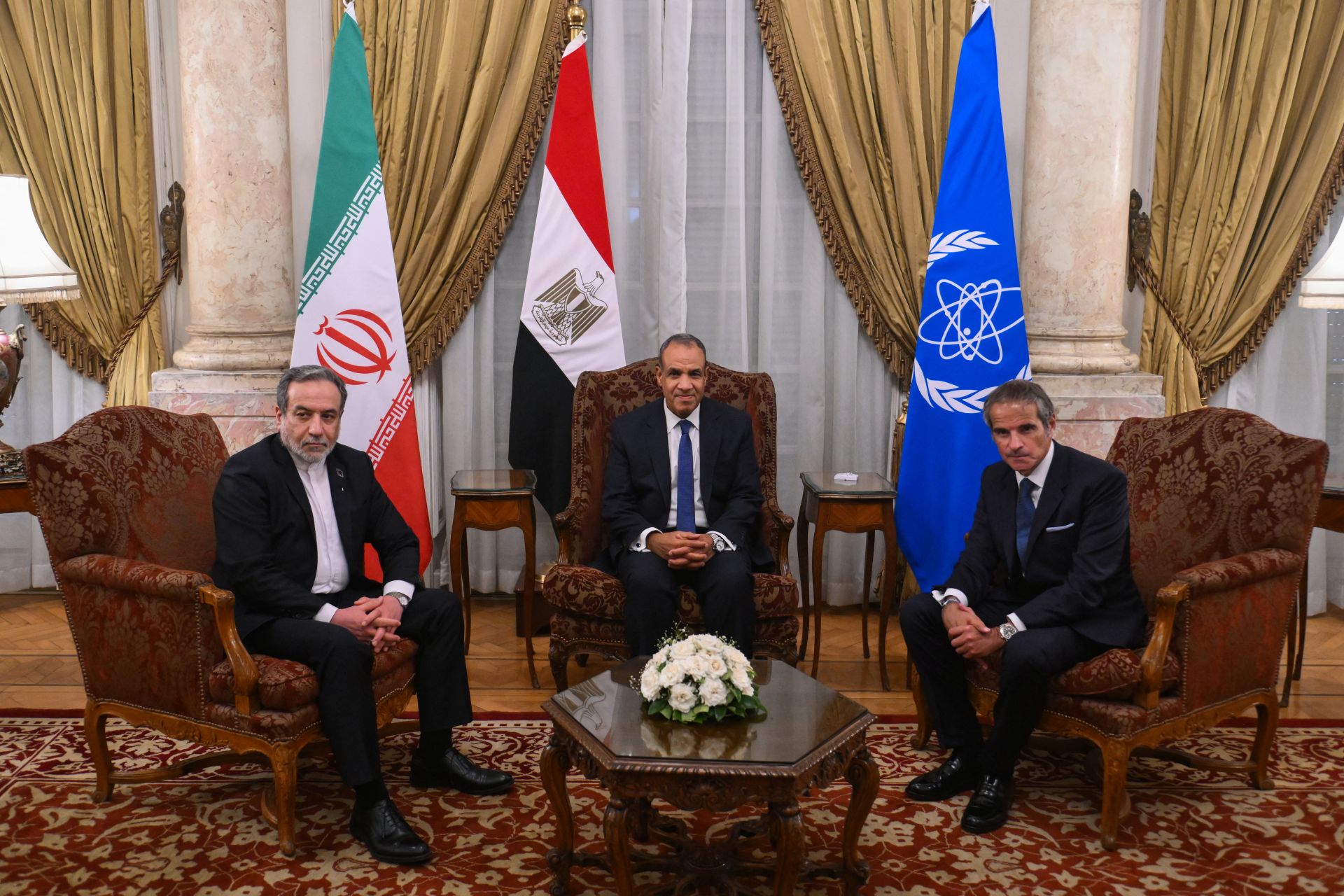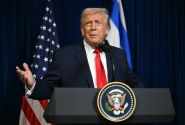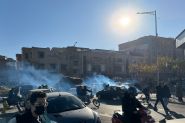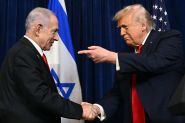- Home
- Middle East
- Iran Says Agreed New Cooperation Framework with UN Nuclear Watchdog

Egypt's Foreign Minister Badr Abdelatty (C) meets with his Iranian counterpart Abbas Araqchi (L) and Director General of the International Atomic Energy Agency (IAEA) Rafael Grossi in Cairo on September 9, 2025. ©Ahmed Hasan / AFP
Iran agreed to a new cooperation framework with the UN nuclear watchdog on Tuesday, after it suspended cooperation following the war with Israel in June.
The agreement was signed in Cairo by Iranian Foreign Minister Abbas Araghchi and International Atomic Energy Agency chief Rafael Grossi, who hailed it as "an important step in the right direction."
It was the Iranian government's first high-level meeting with the IAEA since Iran suspended cooperation with the agency following the 12-day war with Israel, which saw Israeli and US strikes on Iranian nuclear facilities.
Iran, which criticized the IAEA for failing to condemn those strikes, has said future cooperation with the agency would take "a new form."
"Iran and the IAEA have reached an understanding on how to engage under the new circumstances following the illegal attacks by the US and the Zionist regime against our country's peaceful nuclear facilities," Iran's foreign ministry spokesman Esmaeil Baqaei told state television.
Iran's suspension of cooperation with the IAEA had meant nuclear inspectors would require authorization from the country's top security body in order to conduct their work.
While Iran insists its nuclear program is for civilian purposes, Western countries accuse the government of seeking an atomic weapon, a claim Tehran has systematically denied.
In the Egyptian capital, Araghchi and Grossi signed an agreement titled the "Technical Modalities for Implementation of Inspections between the Islamic Republic of Iran and the IAEA."
"We hope that the agreement will be a real starting point for a new relationship between the two sides that is characterized by greater transparency in dealing with security issues," said Egypt's Foreign Minister Bard Abdelatty during a joint press conference with Araghchi and Grossi.
Whilst in Cairo, the Iranian minister and the IAEA chief met with Egyptian president Abdelfattah al-Sisi, who lauded the agreement as "a positive step toward de-escalation."
Return to negotiations?
Sisi added that it could pave the way "for a return to the negotiating table and the achievement of a peaceful settlement to the Iranian nuclear programme," according to a statement by the Egyptian presidency.
Tehran's suspension of cooperation with the IAEA saw the agency's inspectors leave Iran, before a team briefly returned last month to oversee the replacement of fuel at the Bushehr nuclear power plant.
They departed shortly afterwards.
Access to nuclear sites now requires the approval of the Supreme National Security Council, and the most recent inspection was not granted access to other key sites, including Fordo and Natanz, which were hit in the June strikes.
In August, Britain, France and Germany initiated steps to reimpose UN sanctions after weeks of warnings, citing Iran's continued non-compliance with its commitments under a 2015 nuclear agreement.
Iran has condemned the move as "illegal" and warned that it could lead to the exclusion of the European powers from any future negotiations.
Egypt's Abdelatty said he hopes the deal could first "enable an understanding" with the European powers.
Donald Trump, during his first term as president, unilaterally withdrew the United States from the 2015 nuclear deal and slapped crippling sanctions on Iran.
A new round of nuclear talks with the United States, which had begun in April, ended when Israel launched strikes on Iran in June.
Iran has since demanded guarantees against military action before resuming any negotiations.
Last week, Iran's security chief, Ali Larijani, said that his government was open to nuclear talks with the United States but ruled out any restrictions on its missile program.
AFP
Read more



Comments